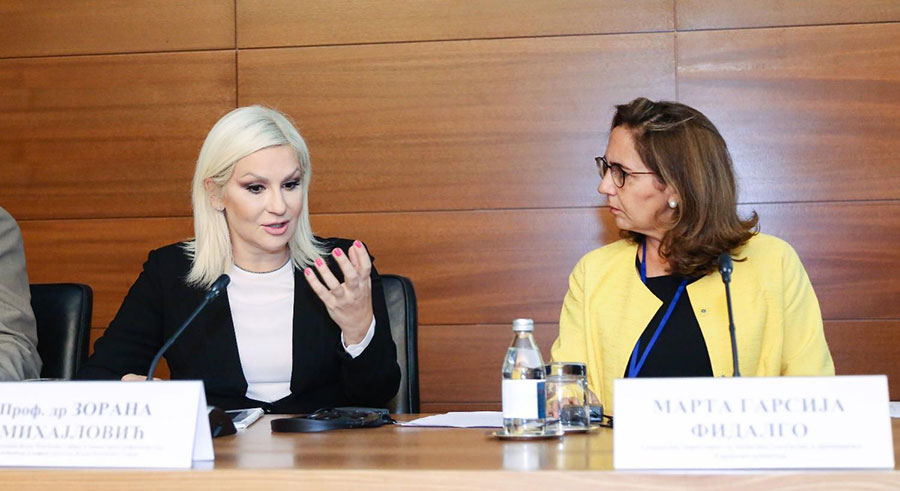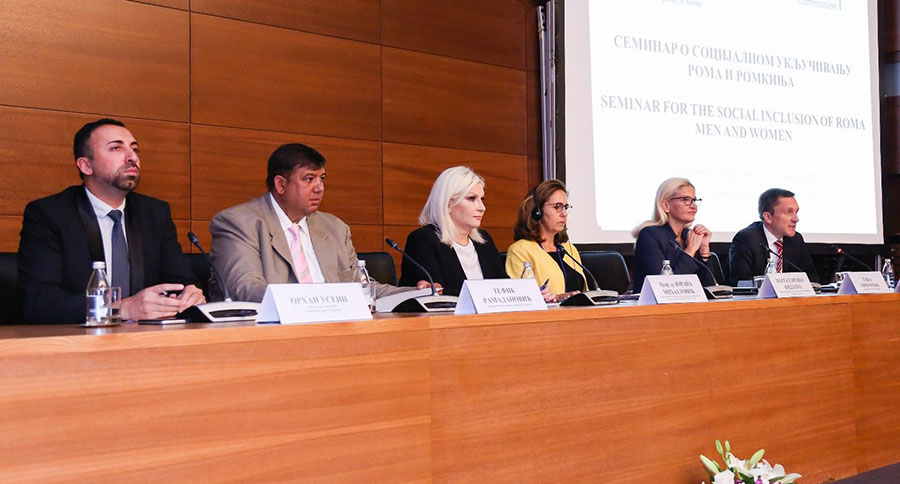Participants in the seminar on Roma social inclusion concluded that there would be no progress in social inclusion of Roma unless everyone is engaged in the process at all levels, including the Government.
Thus kicked off the fourth Seminar on Roma inclusion in Serbia, a meeting dedicated to the status of Roma in the region organised by the European Commission biennially since 2011.
Deputy Prime Minister/Minister of Construction, Transport and Infrastructure Zorana Mihajlovic said that a special focus should be put on Roma employment and integration into institutions, adding that such a serious task is neither a one-man job, nor a job of a ministry or a group of people, but an endeavour of the society as a whole.
She said that the number of Roma in higher education had increased, noting, however, that they are having trouble finding jobs after finishing their education. As an example, she cited 11 students of Roma descent who had finished Criminalistics Academy but remained unemployed.
“This issue should be dealt with in the light of development of a democratic society and the fact that children should be taught from the earliest age about the society we strive for,” Mihajlovic said.
Marta Garcia Fidalgo of the European Commission’s DG NEAR said that adoption of documents and a change in mind-set were equally important.
“Roma integration is a priority put at the very heart of EU enlargement negotiations,” she said and added that progress in this particular field directly affected the overall enlargement process.

FoNet
“We have set a course and timeframe for Roma integration. It is the responsibility of all of us to contribute to that process. Each and every one of us must do their part. In order to do so, we have to establish coordination among ministries, local authorities, SCOs and the Roma community,” Fidalgo said.
Head of Serbia EU negotiating team Tanja Miscevic underscored the importance of creating conditions for a normal life of such a large group of people, adding that by doing so, Serbia would join the ranks of developed European countries.
“Changing the mind-set is the hardest part. Unfortunately, such a change cannot happen overnight, which is why we have put in place strategies and action plans to help us change our mind-set one step at a time,” she said adding that the issue of Roma inclusion is dealt by several chapters other than chapter 23.
She recalled that Serbia had so far opened 10 chapters, describing as realistic the possibility of opening another four by the end of 2017.
President of the National Council of the Roma National Minority Tefik Radmanovic said that it was necessary to make a clear distinction between political and technical participation of Roma in the implementation of inclusion strategy, noting that Roma are underrepresented in decision making structures.
“The strategy should be visible at all levels and Roma should be visible in structures at all levels, be it ministries or local self-governments,” he said and added that, unfortunately, one cannot be satisfied with the current degree of implementation of the Strategy.
He said that the final goal was to achieve equality and added that he was certain that equality can indeed be established through joint commitment to and coordination of the process.
Seminars on Roma social inclusion
Roma seminars are the main channel of communication between the European Commission/EU Delegation and Serbian authorities dealing with these issues. Operational conclusions adopted in June 2015 Seminar and the Action Plan for chapter 23 are key elements of the legislative framework for Roma inclusion in Serbia. Therefore, regular reports from the Government regarding their implementation are of crucial importance.
This year’s Seminar discussed actions to improve the status of Roma in education, implemented activities aimed at Roma employment and issues encountered in that area at the national and local level, social and health protection of Roma, housing and legalisation of Roma settlements as well as challenges and possible solutions to the issue of personal documents and the status of IDPs and returnees under the Readmission Agreement.
So far, Serbia has hosted three such meetings – in 2011, 2013 and 2015. On these regular meetings, the European Commission and Serbian authorities assess progress/state of play in the following areas: education, personal documents (i.e. registration of Roma and issuance of IDs), health protection, housing and employment.
In addition, Seminars adopt joint Operational Conclusions (measures to be taken by authorities in a certain period of time) whose implementation is regularly monitored later on.




